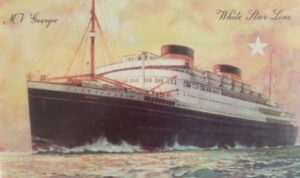LONDON – The UK seems to have been a holdout in the brand-washing category, namely dumping old brands in favor of invented ones. But this is no longer the case. We heard about the news that the Abbey, Alliance & Leicester and Bradford & Bingley brands are to be scrapped in favor of the Spanish brand Santander.
The brand scrapping is a big mistake, though any company with muscle can accomplish a brandwashing through money and muscle. And this decision is made easier because these companies were under financial duress, and the whole brand promise of a financial services brand is that you can trust them.
Nevertheless, there are numerous reasons why it is a bad idea, the least important of which is there is LESS business for branding firms in the long run the fewer brands there are. The trouble is that while branding firms make lots of money with re-brandings, once the work is done, the branding companies have FEWER brands on the landscape, and less history to work with. The pie gets even smaller. And more generic and boring.
British people are tired of losing their Britishness, just as Americans get tired of losing American brand names. Civic identity is wrapped up in these companies, and it stinks that we are losing this at a time when everything seems terribly un-rooted. This mistake was made by the insurance company Norwich Union switched its name to Aviva. ICK.
Santander needs to keep the brand names. While it has to do a rebrand of the entire company to make things consistent, there is no reason why Abbey and Bradford & Bingley can’t be used as sub-brands or product brands for individual product lines. It might leave a few offices open under the old brands, but rebrand all the rest. Or it could have savings product lines offered under the old brand names. It might, for instance, offer an “Abbey” account, much as VISA companies offer charge cards co-branded with airlines.
This does a number of things. First, it keeps customers feeling that their old friend is still around. This is an important notion in a time when all seems to be changing. Secondly, it allows the company to keep some of the goodwill associated with the brand. Lastly, it helps protect the brand from interlopers down the line. If Santander drops the names entirely, new companies can start using these old brand names.
Santander needs to realize that these brands are not only popular in the U.K., but are a part of what we associate in the US as British. They would have value here, too.
We don’t have the definitive answer on this; what we are sure of is that there are modest ways to keep the names alive, without sacrificing Santander’s overall branding scheme.







